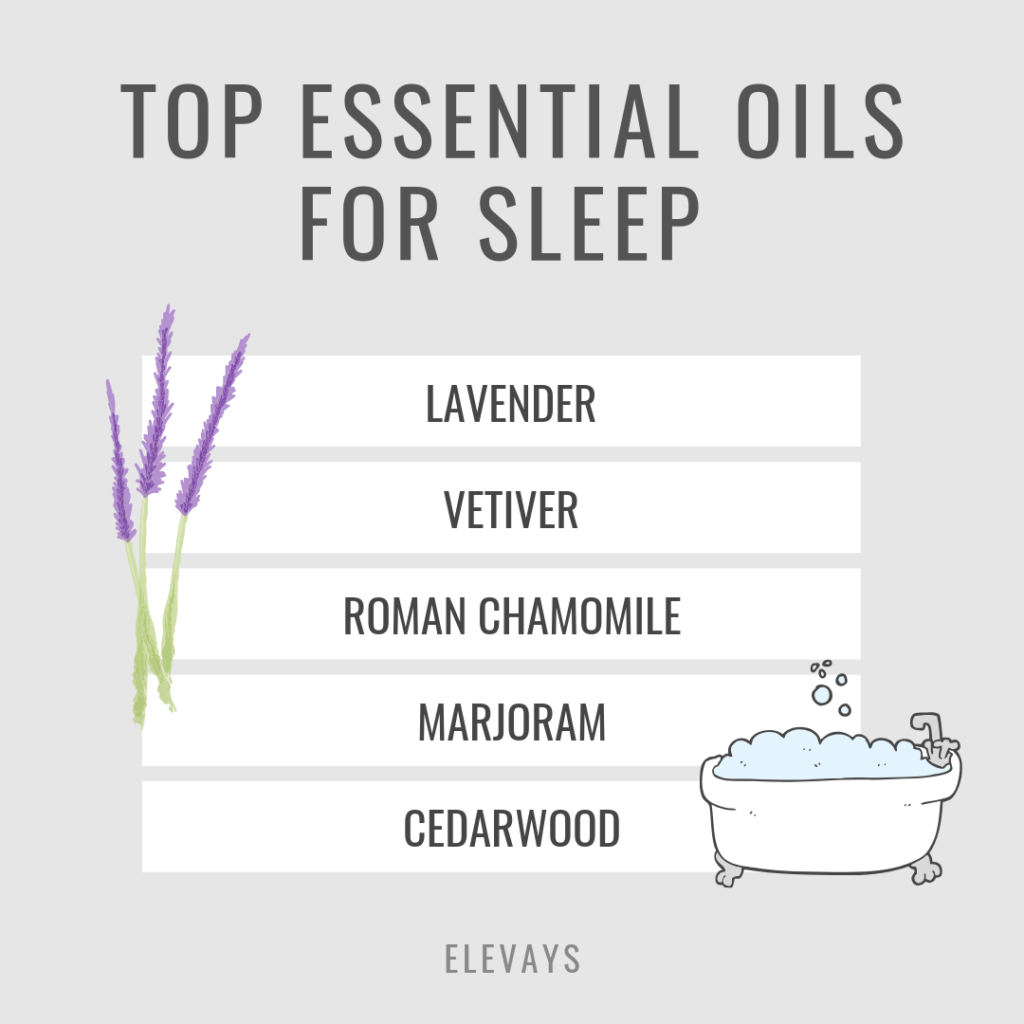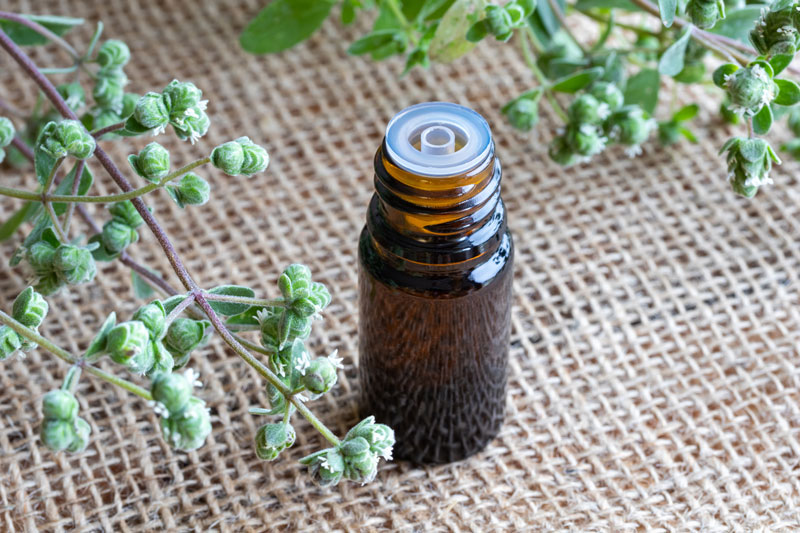If you’ve ever had trouble falling asleep (who hasn’t?!), you know how frustrating sleep deprivation is (especially if you have trouble falling asleep after repeatedly waking up to parent a baby or toddler).
You toss and turn all night, only to wake to your morning alarm feeling frustrated and tired. You’re running on fumes. It takes you hours to fully wake up, and you can’t wait to get back to bed.
But each night you push yourself to clean up the house after the kids go to bed or wipe off the dirty kitchen counter one more time only to watch it destroyed by the time breakfast is over (can you tell I’ve done this a few times?).
TRUTH BOMB:
You’re
Already killing it!
If You Were More Consistent With Your Wellness Routine, You’d Be Unstoppable.
Thankfully there are natural ways you can get more consistent and restful sleep night after night, without adding toxic over-the-counter pills into the mix. Essential oils, for example, are safe to use for the entire family and they can help you get into a deep rejuvenating sleep so that your energy is high all day.
This is your ultimate guide on how you can use 5 powerful essential oils for sleep and why you should give them a try today.
Sleeping Trouble Happens to Everyone
A good night’s sleep is what most of us need, yet most people don’t get enough sleep. Some may not even realize the reasons they’re having trouble sleeping until they visit a doctor.
40 million people suffer from sleep disorders, another 60 million from insomnia, and countless people brush off sleep as a luxury they don’t have time for, opting instead to focus on to-dos from the day (1).
Whether you suffer from clinically serious sleeping disorders or you’re just up thinking about all the stuff you didn’t get done in the day, sometimes it’s hard to get restful sleep.
The goal is to ensure you get more rest each night, and there are some natural things you can do to make sure that happens no matter what age you are.
The Importance of Consistent and Restful Sleep
With 40% of Americans sleeping 6 hours or less per night, sleep deprivation and the serious health conditions it leads to are at an all-time high (1).
When you don’t sleep enough, you feel exhausted and may struggle to focus. You can get headaches, body aches, or overall feel crummy.
When you don’t get the rest you need your body can’t take the time it needs to rest and repair. This can suppress immune system function making you more susceptible to sickness like the common cold or flu. Work-related accidents or car accidents also become more likely. Sleeping less than 6 hours per night is also linked to serious health conditions including the following:
- Diabetes
- Chronic inflammation
- Heart disease
- Obesity
- Mood disorders
- High blood pressure
- Lowered immune function
- Premature death
A good night’s rest each night, on the other hand, leads to a boost in energy levels, enhanced memory and cognitive abilities, better immune system function, and stronger responses to stress. Consistent and restful sleep helps everyone feel good.
How Much Sleep is Enough?
Everyone is different, and so they must require different amounts of sleep, right? Well, researchers have determined that the number of hours to reach enough sleep depends on your age. These life stages and the number of hours of sleep directly relate, with children often needing more sleep:
- Newborns: 16 – 17 hours
- Infants: 14 – 15 hours
- Toddlers: 12 – 14 hours
- Preschoolers: 11 – 13 hours
- School-Aged Kids: 10 – 11 hours
- Teenagers: 8.5 – 9.5 hours
- Adults: 7.5 – 8.5 hours
Women may also notice a change in the amount of sleep required, particularly if you are pregnant. Reproductive cycles can alter the female body, making you feel sleepier during phases of your menstrual cycle or in certain trimesters of pregnancy.
The most important thing is to listen to your body. Anticipate your sleep needs ahead of time, and plan to sleep more if your body is telling you to sleep.
Why Conventional Drugs Today Aren’t the Answer
When many people have trouble falling asleep, they turn to over the counter sleeping pills for help. The problem with this is that many of these pills are addictive and come with uncomfortable side effects. Plus, essential oils work really well for many people which is why I recommend them as a first line of defense before jumping straight to medication.
Benefits of Using Essential Oils Instead
One of the main reasons why I love essential oils is that they can naturally put you to sleep. But instead of forcing sleep (like a pill), when you use essential oils for sleep, they promote feelings of calm and relaxation to “prime” you for sleep making it easier to fall asleep (and stay asleep) on your own.
The other benefit of using essential oils is that they are extremely versatile. One essential oil can be used for many different things. For instance, Lavender (one of the best essential oils you can use for sleep) is not only great for promoting relaxation, it’s also used for skin irritations, bug bites, anxiety, sunburns, migraines, headaches and more.
I’d much rather use an essential oil that can naturally promote my health and well-being in a variety of ways than use a potentially addictive sleeping pill that comes with a range of side effects.
The 5 Best Essential Oils for Sleep

These essential oils are highly popular for good reason: for most people, they get results right away.
Since essential oils are also dependent on your body chemistry, sometimes people have stronger responses to some oils as opposed to others. You may need to find which aromas work best for you, but with these 5 essential oils, most people experience a noticeable difference early on.
1. Lavender
The most widely reputed natural source for promoting calm and sleep, lavender oil is safe to apply to the skin even in larger amounts. (Be sure to test for allergic reactions first by dabbing a little on your hand.)
You can dab a few drops on your wrist at bedtime, inhale a few deep breaths of the oil, or add 10 to 12 drops to a bath to unwind and relax.
2. Vetiver
Now, this is one you may not have in your oil stash but it is a true gem when it comes to all things sleep. It’s sweet, woodsy and super calming and grounding, which makes sense since Vetiver is a member of the grass family!
Vetiver blends well with lavender, so one of my favorite ways to use Vetiver is to add it to a warm bath before bed. For a large soaking tub, mix 6 drops of Vetiver and 9 drops of Lavender with the bubble bath and add to the water. Include Epsom salt for even more relaxation. So very soothing before bed!
3. Cedarwood
This oil is the king of relaxation. It’s woodsy, warm and soothing to the mind and body. It’s super versatile in achieving your dream sleep since it can be diffused or applied topically (BONUS: it’s actually great for skin issues like psoriasis and eczema! We love multi-use oils – and they are ALL multi-use!).
You can also balance the rich, earthy notes in this oil with a couple drops of Lavender oil, which pairs well and allows you to double up on your relaxation oils!
4. Marjoram
Marjoram is perfect for sleep because it helps calm busy minds and allows you to stop focusing on your restless thoughts. Some say marjoram is even more powerful than Lavender or Chamomile. Personally, I think this oil is so underrated and I enjoy it even more than Lavender and Roman Chamomile.
This is easily one of my favorites to inhale before bed while doing some gentle stretches or to add to a bath. You can also add a couple of drops of marjoram to a pillow to drift into a restful night.
5. Roman Chamomile
Known as one of the best and most popular natural sedatives, Roman Chamomile’s versatility makes it a great essential oil for sleep (5). It can be extracted into an oil or steeped into a tea, and the plant is proven to help relieve stress and anxiety.
Simply sprinkle a drop or two of Roman Chamomile into steaming water, take 10 deep breaths, and you’ll drift off to dreamland before you know it.
Some Other Essential Oils You Can Use
- Ylang Ylang – Helps you fall asleep fast and alleviate stress or anxiety quickly due to its sedative effects (5).
- Sandalwood – A rich earthy scent that’s not for everyone, sandalwood is effective in easing anxiety due to its calming effects (7).
- Valerian – Used to alleviate insomnia since the 17th century, valerian oil will help you fall asleep quickly and improve your sleep quality (5). This is a good oil to use as an alternative to some of the others if you’re not someone that likes Lavender as much.
- Neroli – Often overlooked, neroli oil comes from the blossom of a bitter orange tree. In a study, it produced calming effects that reduce stress and blood pressure, especially in combination with lavender and chamomile (5).
How to Use Your Essential Oils to Aid Sleep
The easiest way to gain the advantages your essential oils have to offer is to place a few drops on your wrists or hands just before bed and rub them together, smoothing the rest across the back of your neck and chest.
However, you can still use essential oils without applying them directly to your skin. Here are 5 of the best ways you can use essential oils for sleep:
1. Diffusers
Diffusers are a simple and easy way to take advantage of essential oils around the home without having to actively apply them, which is perfect for a sleep aid.
For this strategy, you’ll want to get a diffuser that lasts 8 hours or longer to cover you the entire night. doTERRA’s Lotus diffuser is my favorite and it travels well, too.
- Diffusers are a great way to continuously experience the natural benefits of essential oils. To use, just add 4 to 6 drops of essential oil to the diffuser, fill with water and turn it on 30 minutes before bedtime to take advantage of the aromatherapy benefits all night long.
- You can also wear a diffuser necklace to take the scent with you from room to room as you wind down for the night.
Bonus Tip: Try doTerra’s Serenity, a blend of calming oils like Lavender, Roman Chamomile, and Ylang Ylang mixed with the Ho Wood, Hawaiian Sandalwood, Vetiver, and Marjoram essential oils. The sleep combination packs a powerful punch. They even make Serenity Restful Complex Softgels you can take in capsule form which is a perfect replacement for OTC sleep aids!
2. Take a Deep Breath
Inhale the essential oil before bed or in the morning for an added boost. Relaxation is critical for falling asleep and staying asleep. Instead of staring at the walls, let essential oils help you unwind in those minutes before bed.
Essential oils can also help you wake in the morning. If your first plan of action is to head to the kitchen to start your morning cup of Joe, you might try using Peppermint instead.
How to Use It: Add 1 to 2 drops of your essential oil to your palms and rub your hands together to combine it. Cup your hands over your nose and inhale deeply several times.
In the evening, try using Lavender or any of the other essential oils on this list. In the morning, try Peppermint to help you wake. Inhale a drop in the palms first thing in the morning. For easy access, keep this invigorating essential oil beside your bed. When the alarm clock goes off, instead of reaching for the snooze button grab your Peppermint essential oil.
For an added boost, add a drop of Wild Orange to your palms when you inhale the Peppermint.
3. Linen & Pillow Spray
You can easily make a linen & pillow spray using just 3 ingredients. All you need is Lavender, Witch Hazel, and Distilled Water. Spray your sheets or pillow before bed for a relaxing aroma. Use this Sleepy Time Linen Spray daily to experience lasting effects.
Here’s what you need:
- Funnel (not 100% necessary, but it helps a lot!)
- 2 oz. amber glass spray bottle
- 10 drops of Lavender Essential Oil
- 3 to 4 drops of Vetiver Essential Oil (optional)
- 2 tsp. Of witch hazel
- Distilled water
How to Do It: Add your essential oils to the amber glass spray bottle. Using the funnel, add the witch hazel. Fill the rest of the bottle with distilled water. Shake well to combine and spray your linens and pillow before bed.
4. Take a Bath
A warm bath with Epsom salt is a wonderful way to calm your body and mind before bed. Baths even aid peaceful sleep, as they elevate your temperature and cool back off. Try adding in your favorite essential oils for sleep to create an all-natural way to get to sleep faster.
You can also use your Peppermint in your morning shower in the morning to energize you and get the day going.
How to Use It: After you start the shower and it’s hot and steamy, put several drops of Peppermint on the shower floor. I typically do 10 to 15. As the hot water hits the essential oil, it will fill the air with the aroma – almost like a Peppermint steam room.
Alternatively, you can try late night showers with Lavender. Just leave the fan off for best results.
5. Add a Drop to Your Face Moisturizer
Because you probably already wash your face before bedtime, adding a drop of your favorite essential oil for sleep to your face moisturizer is an easy way to improve sleep and gain amazing skin benefits as well. Sandalwood and lavender are typical choices, as they’re great beautifying oils. Sandalwood nourishes dry, chaffed skin and Lavender soothes and calms angry skin relieving redness and skin irritations.
5 Important Tips to Help You Sleep Better
If you want to sleep better, make sure you do calm activities just before bed. With the help of these 5 important tips and an essential oil or two, you can sleep better in no time.
1. Eat Your Last Meal 4 Hours Before Bed
Eliminating certain foods before bed like sugar and chocolate promotes deeper sleep. Instead of these processed foods, aim for foods that are rich in magnesium. Magnesium is a mineral that helps you sleep and can be found in the following awesome foods:
- Apples
- Peanut butter
- Pumpkin seeds
- Nuts
In addition to making healthy eating choices leading up to bed, try to avoid eating before sleep. While you’re sleeping your body’s only job should be to rest and recover – not digesting food.
2. Limit Alcohol or Other Drinks
Drinks a couple hours before bedtime often lead to mid-night bathroom trips, so try limiting liquids. You’ll also want to pay attention to the types of liquids you intake. Caffeine, for example, can stay in your system for 6 hours. Even alcohol can keep you wide awake at night.
Alternatively, Chamomile Tea can support relaxation and deep, restful sleep.
3. Lower the Thermostat
A cool bedroom is the optimal sleeping condition, so there’s no wonder one of the easiest ways you can sleep better is lowering the thermostat at home. Turn the thermostat down to a temperature of 60 to 67 degrees before bedtime or invest in a bedroom fan to cool down bedrooms.
4. Keep the Bedroom Dark
Blue light, like the light that powers most of our devices and rooms today, can alter the circadian rhythms you need to sleep well. Because light, especially blue light, interferes with melatonin secretion (which tells your body it’s time to sleep), it’s important to eliminate blue light as much as possible in the hours leading up to sleep.
If at all possible, invest in amber lamps and lighting options in your home so that when it’s time to power down you can emit a soft, warm light instead of the harsh blue light that comes from most standard light bulbs. Put your phone and laptop down in the hours leading up to bed.
If you’re laughing at that recommendation (as we know it’s not always realistic), install the app called f.lux on your computer and change the settings on your phone to dim the bright light – or if you are using an iPhone program the Night Shift setting to reduce blue light emitted. It will turn on every night without you even having to think about it.
I also love to wear blue light blocking glasses before bed (and even while on the computer during the day) to eliminate eye strain and block out blue light.
Whenever possible, use the time leading up to bed to relax, read or spend quality time with your family. It really is important to unplug from technology and set yourself up for a great sleep by investing in the activities that will support that.
5. Create a Sleep Schedule
You may dream about sleeping in on the weekend, but a chaotic sleep schedule may be the reason you have trouble sleeping. By keeping a regular sleep schedule that’s right for you, your body will know when it’s time to wake and sleep automatically.
Hopefully, these essential oils for sleep help you get the rested nights you’re looking for, allowing you to wake ready to tackle your day. Check out this post if you need more tips to help you wake up early and energized. Sleeping better may just come down to finding what works best for you and your family.
Which essential oils have you tried for deep sleep? If you have never tried oils, which will you try first? Let us know in the comments below.
Sources:
- Jones, Jeffrey M. (2013). In U.S., 40% Get Less Than Recommended Amount of Sleep. Gallup News. http://news.gallup.com/poll/166553/less-recommended-amount-sleep.aspx
- Blahd, William. (2016) 20 Tips for Better Sleep. WebMD. https://www.webmd.com/a-to-z-guides/discomfort-15/better-sleep/slideshow-sleep-tips
- Harvard Medical School, (2017). Blue light has a dark side. Retrieved from: https://www.health.harvard.edu/staying-healthy/blue-light-has-a-dark-side
- Division of Sleep Medicine at Harvard Medical School, (2018). Assess Your Sleep Needs. Retrieved from: http://healthysleep.med.harvard.edu/need-sleep/what-can-you-do/assess-needs
- Cho, M., Min, E. S., Hur, M., & Lee, M. S. (2013). Effects of Aromatherapy on the Anxiety, Vital Signs, and Sleep Quality of Percutaneous Coronary Intervention Patients in Intensive Care Units. Retrieved from: https://www.ncbi.nlm.nih.gov/pmc/articles/PMC3588400/
- Babar, A., Saiba, S., Naser, A., Aftab, A., Shah, A., & Firoz, A. (2015, July 10). Essential oils used in aromatherapy: A systemic review. Retrieved from: https://www.sciencedirect.com/science/article/pii/S2221169115001033
- Gaye, Kyle (2006). Evaluating the effectiveness of aromatherapy in reducing levels of anxiety in palliative care patients: Results of a pilot study. Complementary Therapies in Clinical Practice. Retrieved from: https://www.sciencedirect.com/science/article/pii/S1744388105001246
- Sweet marjoram. (2011, March 07). Retrieved from: https://missapismellifera.com/2011/03/07/sweet-marjoram-–-off-to-bed-sleepy-head/









I have a lavendar spray and a separate pine spray that I mist over my bed before sleep. Love the combination!
That’s awesome, Diana! Thanks for sharing!